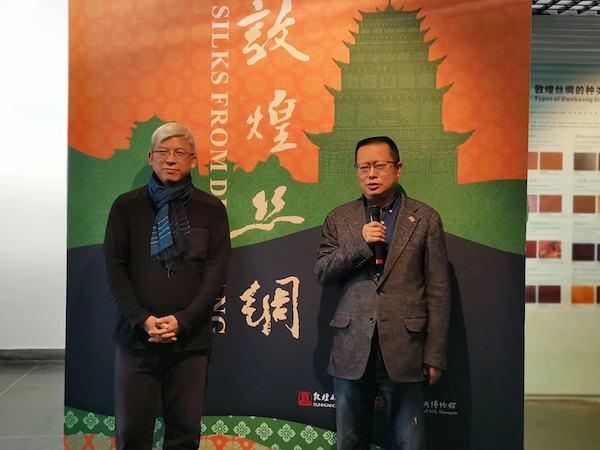
第一单元语法知识: 1.近义词 eat breakfast—have breakfast eat lunch—have lunch eat dinner—have dinner play sports—do sports usually—often 复数形式:policeman—policemen policewoman—policewomen 现在分词:tell—telling 第三人称单数形式:say—says 同义句:What do you do ? ---What are you? 你是干什么的? 2、频度的副词: always 总是,一直 usually 通常,常常 often 经常 sometimes 有时候 4、介词后跟表示时间的词语时,表示在某年、某月、某个季节,某个时候(在上午,在下午,在晚上)用in;表示在某一天,在星期几用on,在具体的几点几分用at. 5、too 和either的用法区别:too和either都是“也”的意思,但too用于肯定句,either用于否定句。 第二单元语法知识同义词:autumn(英)—fall(美) 对应词:wake up—sleep go to bed—get up 2.三单:say—says ask—asks come—comes 3.同义句:What’s your favourite season?(你最喜爱的季节是什么?) ----Which season do you like best?(你最哪个季节?) 4.表示天气的介词。当表示某地某个季节的天气情况时,要把季节放在前面,地点放在后面。其结构为:What’s the weather like in 季节in 地点? 第三单元主要语法点: 1、关于月份:(1)五月May , 六月June, 七月July,没有简写形式。九月September 的简写形式是前四个字母加点Sept. 其他八个月的简写形式是前三个字母加点。 (2)无论是完全形式还是简写形式,表示12个月的单词的第一个字母都要大写。 2、关于基数词变序数词。 (1)一般情况下,直接在基数词后面加th. (one , two , three 除外)。one—first , two—second , three—third . (2) 以ve结尾的基数词,变ve为f, 再加th. 如:five—fifth , twelve—twelfth. (3)以t结尾的基数词,直接加h。如eight—eighth. (4) 以不发音的字母e结尾的,丢掉不发音的字母e,再加th. 如 nine—ninth. (5) 以y结尾的整十数,在变为序数词时,将y变为ie, 再加th. 如twenty—twentieth (6)20以上的两位数,变为序数词时,十位数不变,只将个位上的数变为序数词。如:twenty-one--—--twenty-first , twenty-two——twenty-second , thirty-four——thirty-fourth (7)序数词的简写形式为表示该词的阿拉伯数字加上该单词的最后两个字母,最后两个字母要变成上标格式。如:first—1st , second—2nd , third—3rd , fourth—4th . twentieth—20th 3. 回答When is your birthday?这个问题,如果只说明生日在几月份,在月份前用in.如 My birthday is in July. 如果要具体说明生日是在几月几日,则要把in去掉,直接用is,或者在is后加on。如My birthday is June 9th. 或My birthday is on June 9th . 4.注意区分两个句子:What day is it today ?今天星期几? What’s the date today? 今天是几月几日? 5. 根据要求写单词: make (现在分词)---making. send( 现在分词)---sending. 6.句子: How many birthdays are in October ?有几个人的生日在十月? There are 3. 7. My birthday is in February .(变为一般疑问句)---Is your birthday in February? 8. Does she have a computer? 她有计算机吗?当第三人称单数和句子中出现了does时,其他动词必须使用原型。 9、读序数词时,前面一定要加the. 如 October 1st .读作October the first. 10、同义句: Who has a birthday in October? = Whose birthday is in October? 第四单元知识点: 1、在电话中介绍自己时,可以用“It’s „ ”或者‘This is „.’。但是不能用“I am „”或者“My name is „” 2、在电话中表另一个人接电话时,应该说:“Can I speak to „?” 3、告诉别人接电话时,说:There is a call for you. 4、在接电话时请别人稍候说:Hold on please.或者Please hold on. 5、动词变为现在分词(加ing)的规则: (1)一般情况下,在动词的后面直接加ing. 如:play—playing clean—cleaning draw—drawing cook—cooking (2) 以单个不发音的字母e结尾的动词,去掉不发音的字母e,再加ing .如: write—writing come—coming take—taking make—making leave—leaving have—having (3) 以重读闭音世结尾的动词,如果词尾只有一个辅音字母,则要先双写这个辅音字母,再加ing. 如: run—running swim—swimming put—putting sit—sitting set—setting 五单元主要知识点: 1、在英语中,当表示妈妈时,无论是人类妈妈还是动植物的妈妈,都可以用she . 而表示婴儿时,也都可以用it. 2、系动词be 的用法:我是am你是are, is跟着他她它。如果人称是复数,扑面一律都用are. 如:I am reading a book. He is cooking dinner. We are doing an experiment. Are you eating lunch? 3、With 除了表示和„一起外,还可以表示“使用”,如: That elephant is drinking water with its trunk.大象正在用它的象鼻喝水。 I am writing with my pen.我正在用我的钢笔写字。 4、当句子中出现了can时,动词一定要用原形。因为can是形态动词形态动词跟动词短语 。 如:Can tigers really swim? I can wash the clothes.我会洗衣服。 I am washing clothes.我正在洗衣服。 5、can , usually , often , sometimes , always 这几个单词都是一般现在时的好朋友,当句子中出现了它们时,动词一般都要用原形。 now, am , is , are 这几个单词都是现在进行时的好朋友,当句子中出现了它们时,动词要用现在分词形式,也就是ing形式。 第六单元主要知识点: 1、现在进行时的句子变一般疑问句时,只要将系动词be(am is are )和主语交换位置,将句末的句号变为问号,但是要注意第一人称和第二人称时,人称和系动词的相应变化。 如:I am reading a book? ------Are you reading a book? You’re walking . -----Am I waling? He is cooking dinner . -------Is he cooking dinner? 2、表示用什么做个实验时,要用on。如 Do an experiment on me , please. 3、 It’s time to 后跟动词的原形,It’s time for 后跟名词。 如:It’s time to go to school. 该去上学了。(到了去上学的时间了。) It’s time for English class.到英语课的时间了。It’s time to have English class. 该上英语课了。













